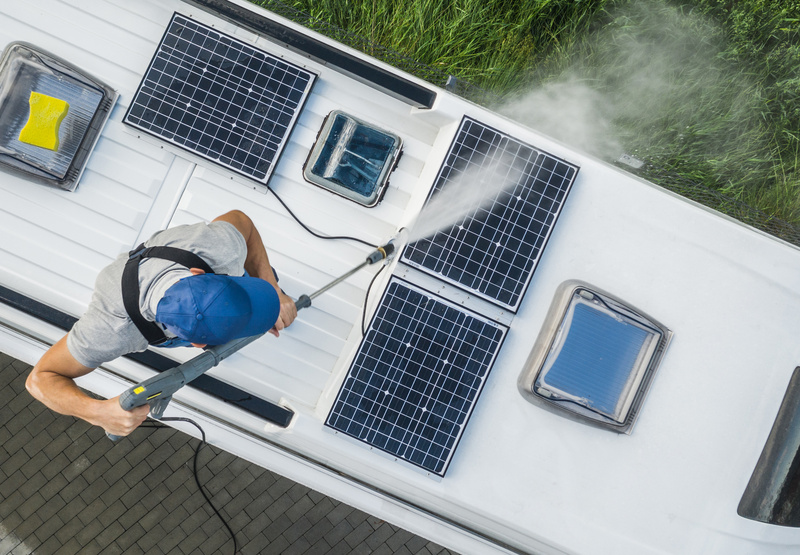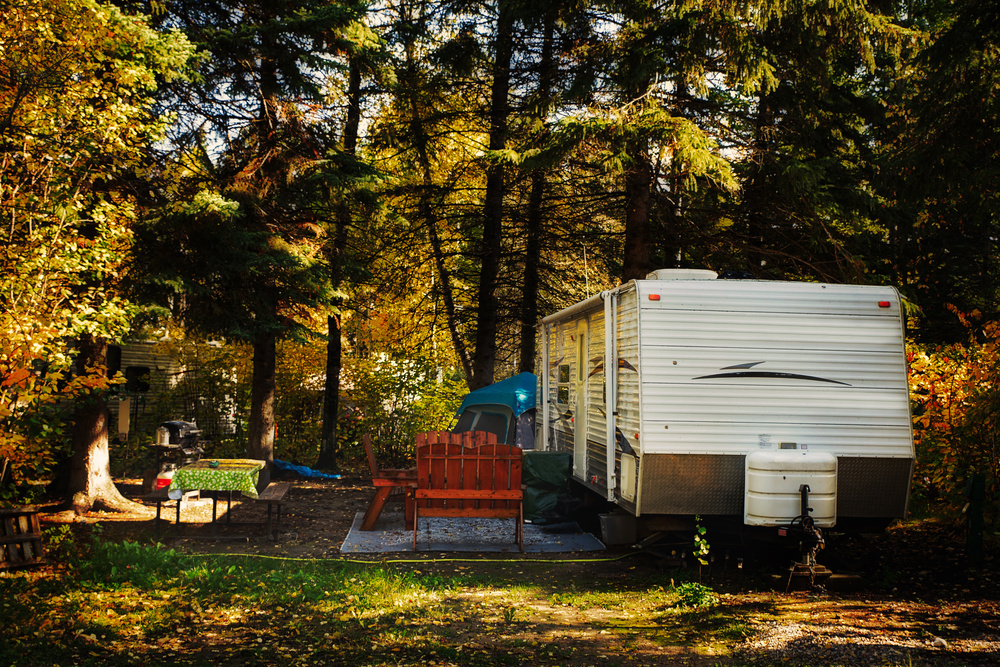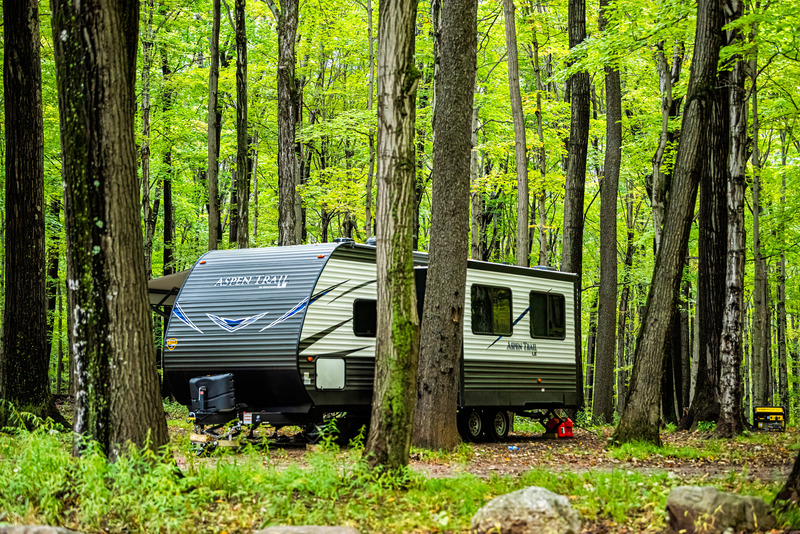As campers, our love for the great outdoors is clear. Time spent in nature is our go-to way to relax and recharge. Hiking, kayaking, fishing and just sitting in the sunshine are our ideas of a perfect day. This, of course, shows the importance of eco-friendly RVing
If we want to continue to be able to spend time in nature, we have to protect it. Even more importantly, we need to preserve our environment for future generations. Our great and great-great grandkids deserve the opportunity to escape to nature just like us.

Importance of Eco-Friendly RVing
Whether you’re driving through the woods in a gas-guzzling motorhome or towing your trailer behind your pickup truck, it’s clear that RVs are some of the worst vehicles for the environment. RVs suck power and pump generators all night, filling the air with electric buzzing.
On the other hand, RVs have a smaller carbon footprint than other popular forms of travel, like planes. They’re also smaller than a traditional home, meaning they use less electricity to fully power the indoor area.
If you’re mindful of how you camp, you can easily do your part to protect the environment. It’s possible to spend plenty of weekends in an RV while reducing your carbon footprint. To help you do your part to protect our environment for future generations, we put together this quick guide to eco-friendly RVing.
Shop Green
Compact RVs are lighter, burn less fuel and use less power. Overall, the smaller the RV the better it is for the environment. Camping is for spending time outside, and compact RVs force you to spend more time in the sun. If possible, choose a small camper. Even better, compact campers can be less expensive! Both in terms of original purchase price and upkeep, compact campers are the right decision economically and environmentally.
Another eco-friendly shopping habit, even outside of RVing, is shopping second hand. It takes a lot of natural resources to manufacture and ship new RVs. Choosing used RVs, and other second-hand items, cuts back on the resources used to get your items to you, and comes at a lower price point.
RV supplies, like cleaning and lighting, can also be more environmentally friendly. Choose LED light bulbs for more light, less energy and less heat. You should also stick to enzyme-based tank cleaners. Toxic tank cleaners can leave pollutants behind, especially in tank dumping areas. Environmentally friendly RVing even comes down to bathroom habits! Use quick-dissolve toilet paper to avoid leaving behind used materials and clogging your RV toilet.
Finally, a switch to reusable items might be the easiest change to make in a transition to eco-friendly RVing. Use products made of bamboo and recycled materials. Skip the paper plates and plastic cutlery. You’ll save money in the long run and create a lot less waste. Purchase a reusable water bottle to take on your outings instead of constantly throwing away plastic ones. These simple switches can make a huge difference in the long run.
Conserve Energy in Your RV
A good way to conserve energy in an RV is through renewable energy. Many RVs come solar-ready, so consider purchasing a solar panel to connect to your camper for power. You could even consider wind turbines, although solar is usually more efficient.

Another great way to conserve energy is to park in the shade. Without the sun beating down and constantly heating your RV, you’ll use less energy trying to keep cool. Similarly, if you’re camping in winter, park in the sun for some natural heat instead of relying only on the heater.
Insulation is also important. If you have a newer RV, the floors and walls are probably already well insulated. For older RV owners, insulation might need to be added. Use double-glazed windows and heavy curtains, especially in winter, to keep the temperature inside your RV stable. Consider an RV skirt to stop winter winds from blowing cold air underneath your unit.

Always Plan Ahead
When packing for your trip, keep it light. The less your camper weighs, the less gas it will use to get where you need to go. Packing light means clothes, but it also means any camping supplies or extras you might be tempted to bring along. Besides weighing less, this will help cut down on clutter in your RV.
Keep your RV up-to-date on any services you might need. Replace your air filters and keep up with oil changes. Check your tire pressure before heading out on your next trip, as tire pressure affects your gas mileage. A well-maintained RV is an efficient and eco-friendly RV.
Lastly, choose green fuel. If your motorhome runs on diesel fuel, consider mixing diesel and biodiesel. Biodiesel blends diesel fuels with natural plant oils to create an environmentally friendly mix. Do research to make sure biodiesel is appropriate for your RV, and plan ahead to find gas stations that provide it.
Although these are just a few tips, there’s always more you can do to improve your eco-friendly RVing habits. Be conscious of your use and reduce your carbon footprint where you can. There are hundreds of ways to make small lifestyle changes that will result in large impacts.
It’s our responsibility as campers to be stewards of the environment. We want to be able to continue to rely on nature as a place of solace, and protect it so future generations can do the same. Follow our tips on environmentally friendly RVing, and do your own research, to camp with a clean conscience.
Begin Your Adventure



